English is a polyglot, meaning: many tounges.
History of the English language
-
Before English
5000 BC – 500 AD
-
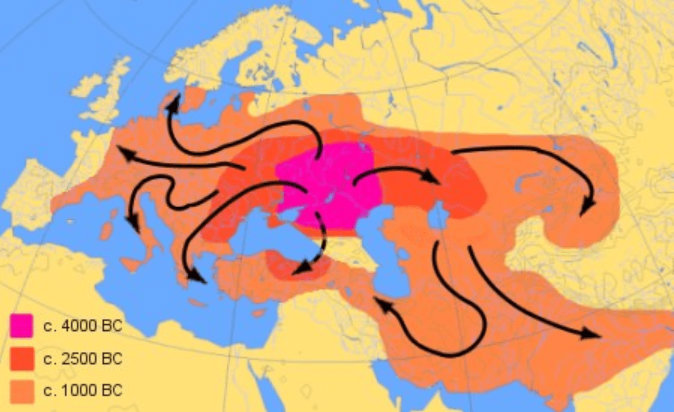
Half of all languages stem from the Indo-Europeans. In fact, they are the largest language family and account for almost half of all languages in the world.
-
- mouse in English
- maus in German
- muis in Dutch
- mus in Latin
- mus in Sanskrit
-
3500 BC The Indo-Europeans began to spread out into groups. English comes from the Germanic branch.
-
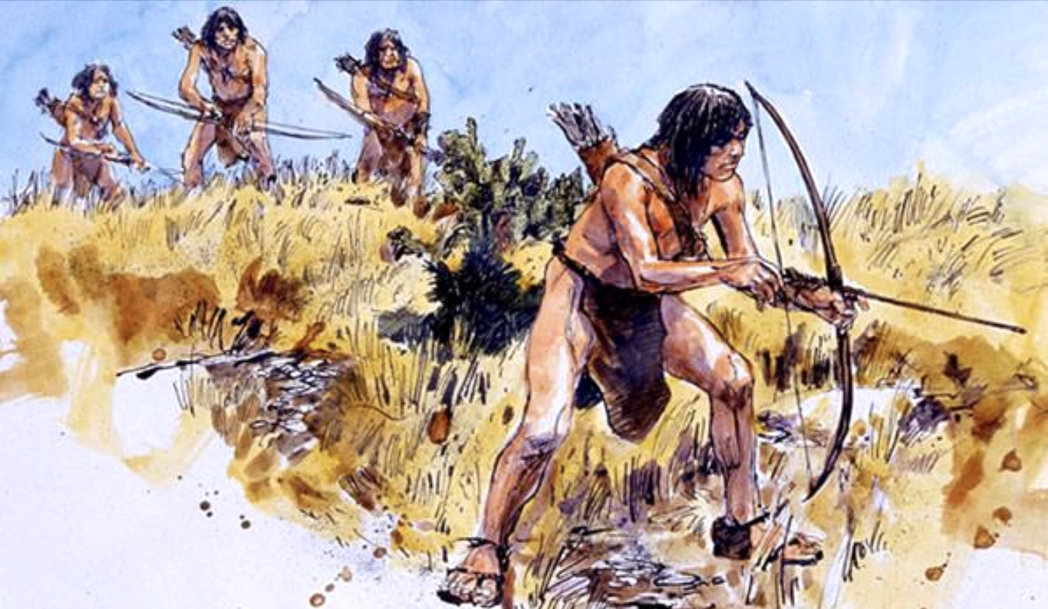
800 BC The Celts, early inhabitants of Britain, are the most widespread group of Indo-europeans. Little is known about these early hunter/gatherers.
-
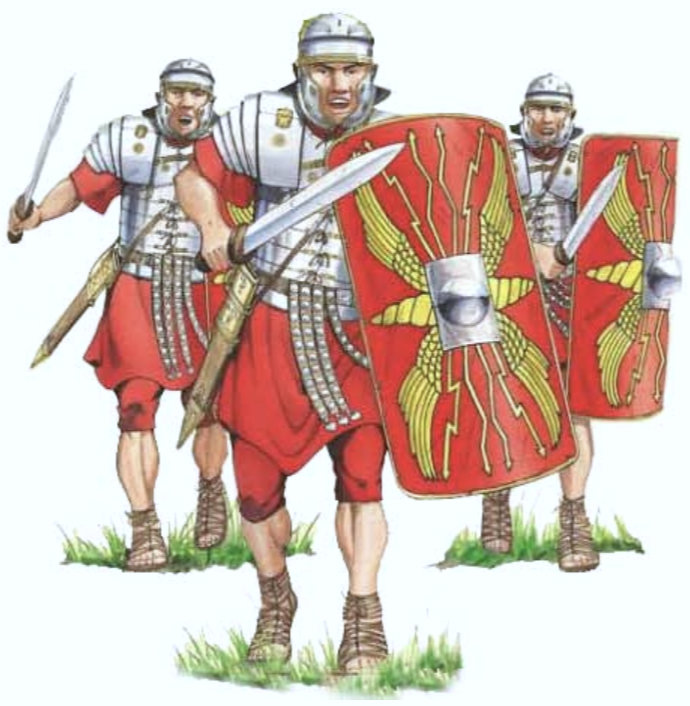
55 BC – 410 AD The Romans invaded Britain in 55 BC under the rule of Julius Ceasar and the Roman Empire. Although they stayed until 410 AD, there was not a lot of influence on English language at this time.
-
-
Old English
500 – 1100 AD
-
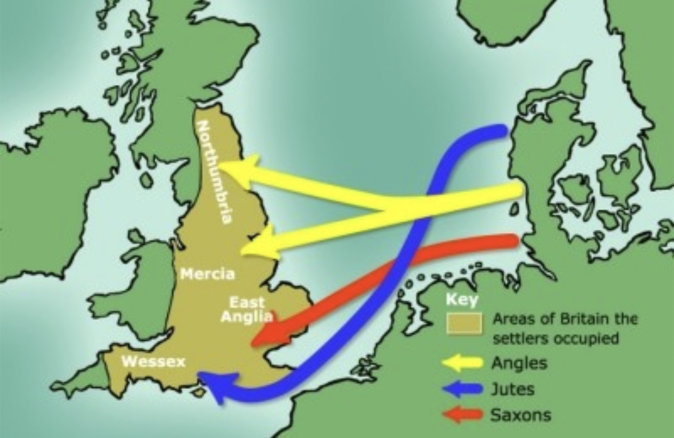
Without the protection of the Roman Empire, Germanic tribes invaded Britian, including the Jutes, the Angles, the Saxons, and the Frisians.
-
450 AD While the Celts were pushed north and west, the Anglo-Saxons became the dominant tribe and spoke Old English.
-
What category would you give to each list of words below?
Are these common or uncommon words?
What syllable patterns do you see?
- man
- wife
- child
- son
- daughter
- brother
- friend
- sun
- moon
- earth
- ground
- wood
- field
- house
- what
- when
- which
- where
-
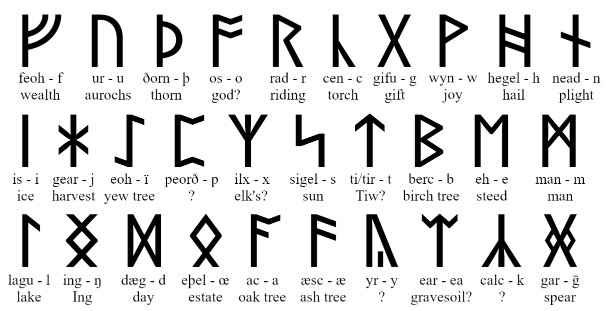
597 AD Roman missionaries introduced the Latin alphabet to the Celts to replace their Anglo-Saxon runes.
-
658 AD “Caedmon’s Hymn” is the oldest text from Old English.
-
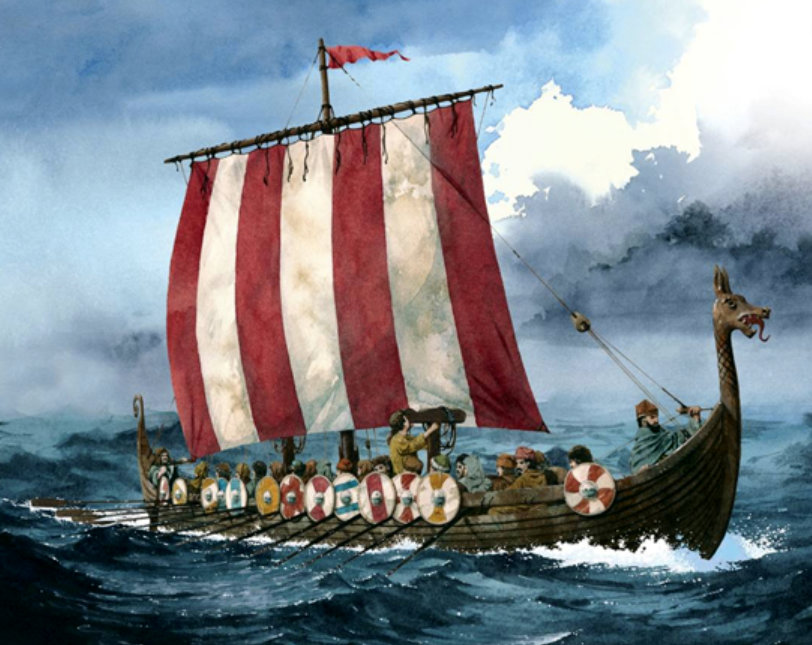
700 AD The Vikings invaded Britain.
-
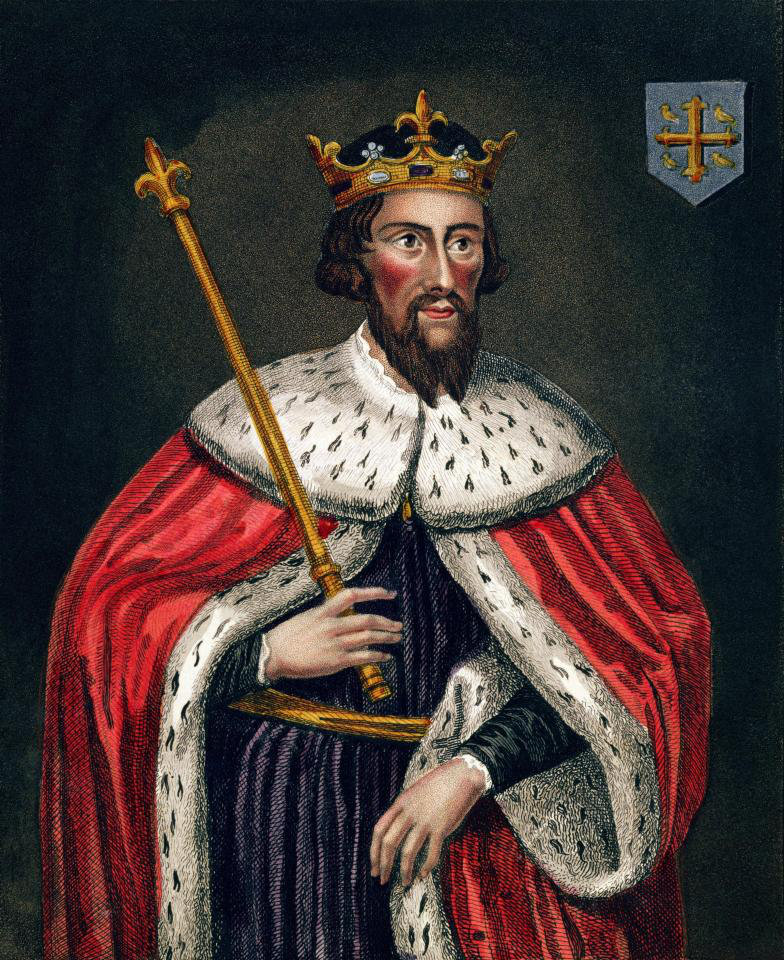
871 AD Alfred the Great became king and united the Anglo-Saxons.
-
878 AD The Vikings and King Alfred agreed to a treaty. Over 1,000 new words were added to English from the Vikings.
-
-
Middle English
1100 – 1500 AD
-
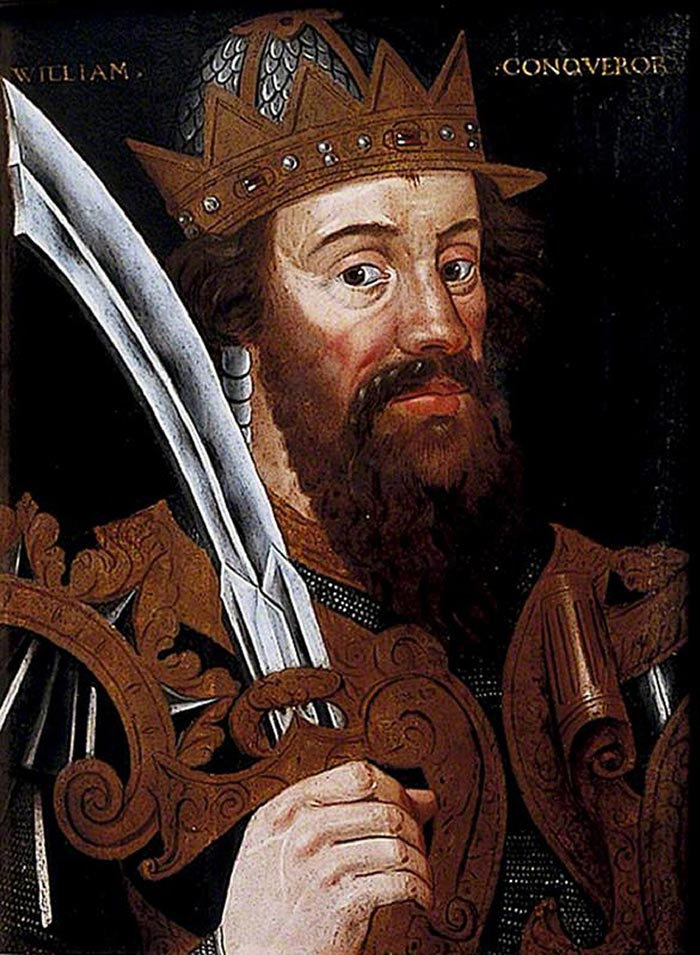
1066 AD William the Conqueror, from France, led the Norman Conquest of England.
-
What category would you give to each list of words below?
- mansion
- money
- gown
- boot
- beauty
- mirror
- jewel
- court
- judge
- justice
- accuse
- arrest
- sentence
- crown
- castle
- prince
- count
- duke
What is the sound of ch in these words?
- chef
- chenille
- chauffer
- chivalry
What is the sound of i in these words?
- machine
- routine
- magazine
-
How many morphemes do you see in each word?
What syllable patterns do you see?
- inspection
- reactive
- detector
- intersection
What do you notice about these prefixes and the root that follows?
- irregular
- illegal
- community
- support
What final blends do you see?
- tractor
- act
- script
- inept
-
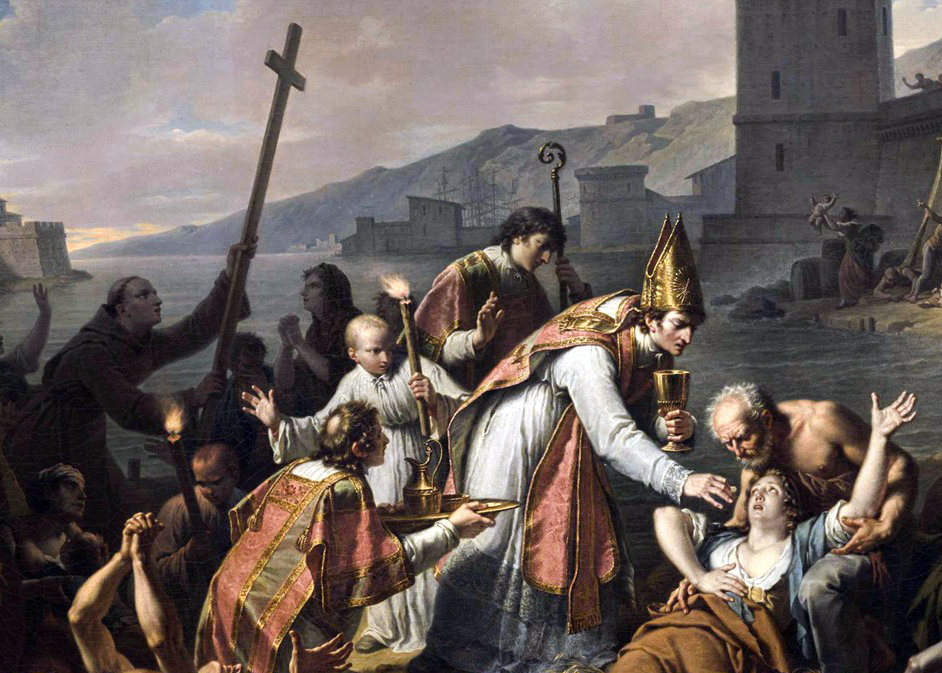
1348 AD The Black Death arrived in England and killed about ⅓ of the people.
-
1362 AD English became the official language of England.
-
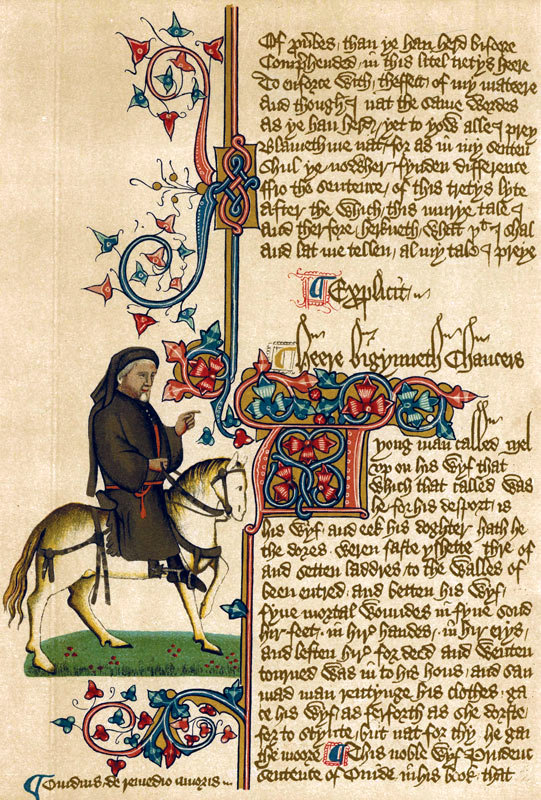
1380 AD Books were written in English including the Canterbury Tales and the Bible.
-
-
Early Modern English
1500 – 1800 AD
-
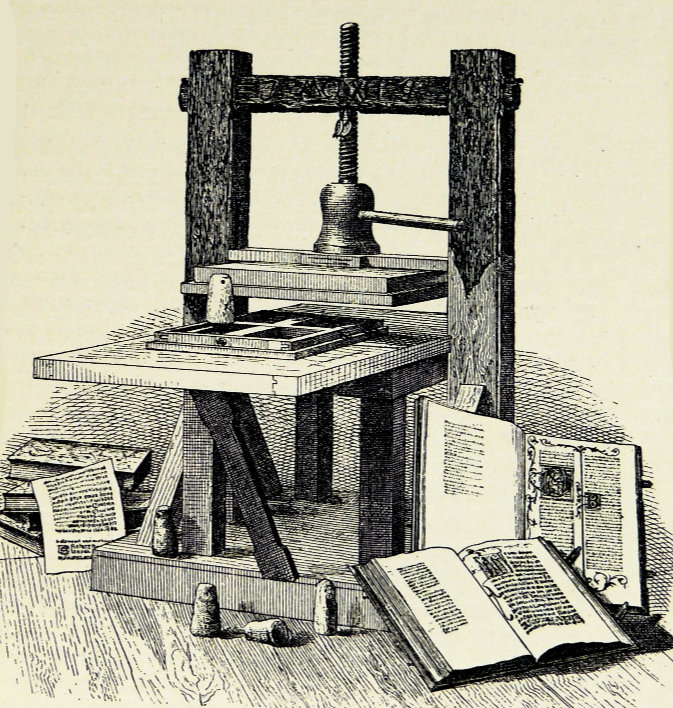
1476 AD The Printing Press arrived in England.
-
1400 - 1700 AD During the Great Vowel Shift, long vowel sounds shifted from low and back in the mouth to high and in the front.
-
1500 - 1600 AD During the English Renaissance, many Greek, Latin, and French words were added to English.
-
How many morphemes do you see in each word?
- photograph
- telescope
- microphone
- kilometer
What is the sound of ch in these words?
- chorus
- Christmas
- chaos
- echo
-
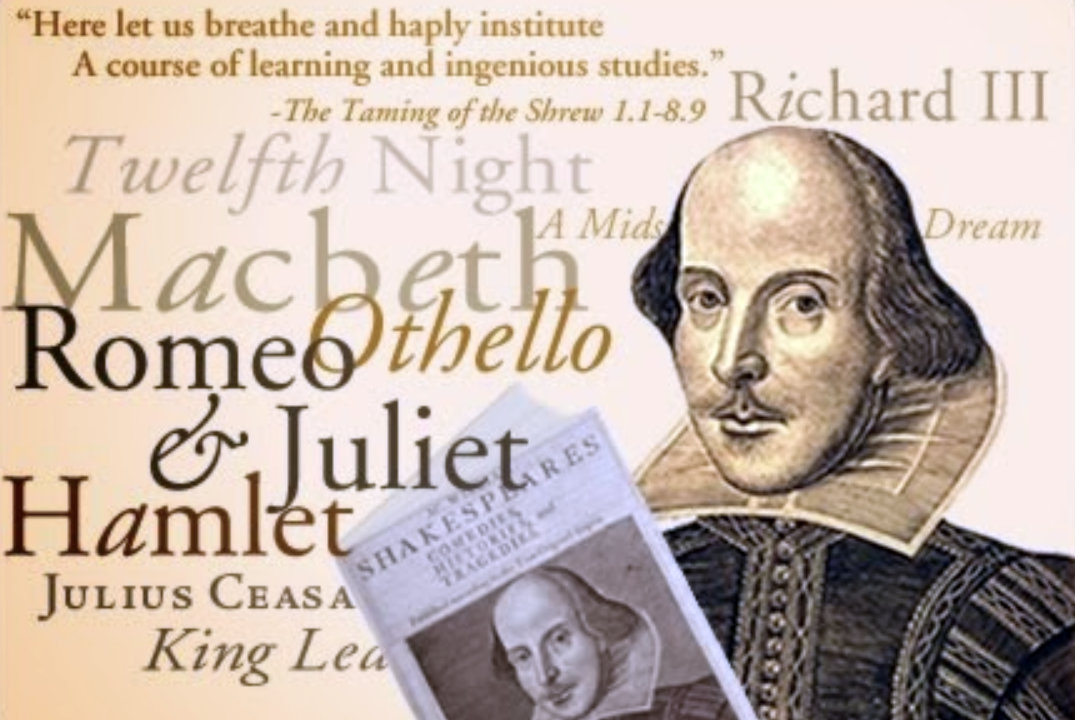
1589 AD Shakespeare wrote many plays and created new words.
-
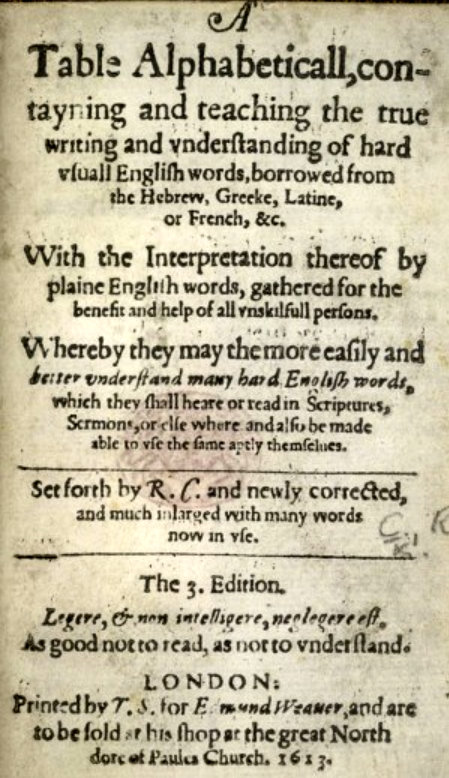
1604 AD The first English dictionary was written.
-
1400 - 1800 AD International trade increased the number of words used from other cultures.
-
-
Late Modern English
1800 – Present
-
- train
- camera
- vacuum
- locomotive
- railway
- horsepower
-
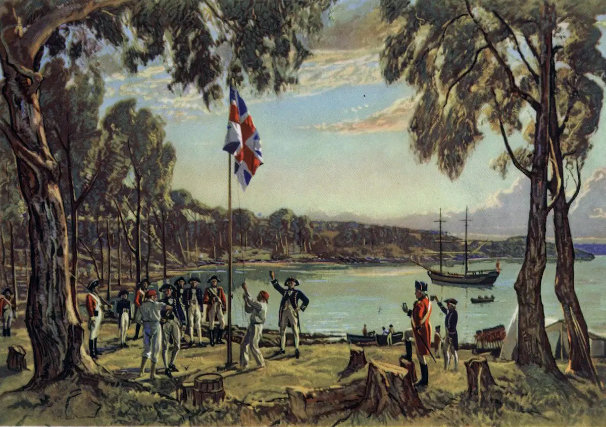
1700 - 1900 AD British Colonialism added more words from places like Australia and India.
-
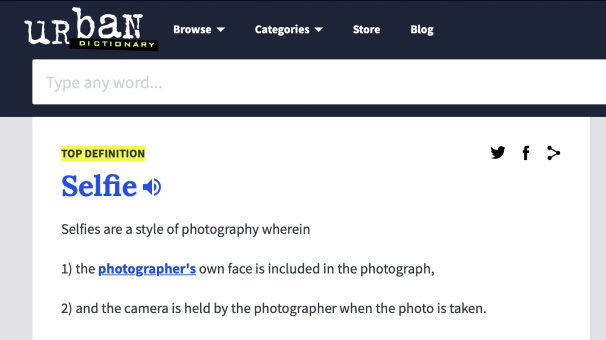
Present English has the largest vocabulary in the world, with new words added every year.
-
After reading through the timeline above, I hope you can see the way in which many other languages have helped shape English as a the polyglot we know.
Test your knowledge of the four major layers of English: